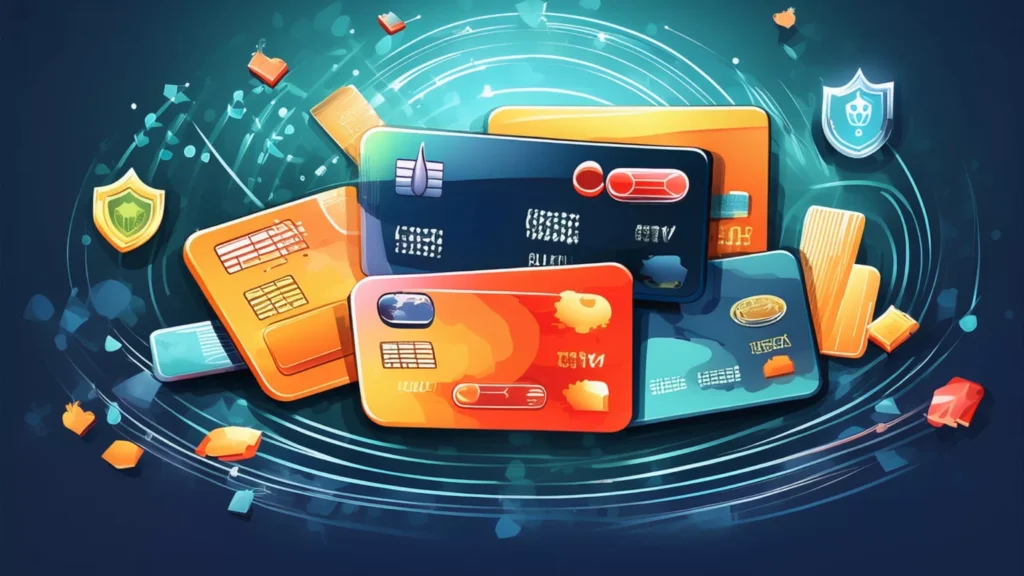The way we use credit cards is rapidly changing. Over the next decade, technology, consumer behavior, and financial regulations will reshape how credit works. From enhanced security to the rise of digital platforms, the credit card industry is preparing for a major transformation. But what exactly should consumers expect as the future unfolds?
While credit cards will likely remain a key financial tool, the form they take and the experiences they provide will be very different. New trends suggest a shift toward personalization, digital integration, and even stronger consumer protections. Let’s explore what the next ten years may bring to the world of credit cards and why staying informed is crucial for users.
Digital-first experiences will become the standard

The future of credit cards will be digital at its core. Physical cards may still exist, but most users will rely on digital wallets, wearables, or even biometric authentication for purchases. This shift is already happening, and in ten years, plastic cards could become a backup rather than the primary tool.
Mobile apps will take over as the main interface between users and credit card companies. With intuitive dashboards, real-time notifications, and instant access to customer service via chatbots or AI agents, users will have more control over their credit accounts than ever before. Payments, card management, and rewards tracking will happen in a few taps.
AI and machine learning will personalize credit like never before
Artificial Intelligence (AI) is set to revolutionize how credit card providers interact with consumers. Instead of generic offers and one-size-fits-all solutions, cards will adapt to individual preferences, spending patterns, and financial goals through predictive algorithms and smart suggestions.
In the near future, your card might automatically suggest the best time to redeem rewards or alert you to overspending in certain categories before it affects your credit score. AI will become your financial assistant, offering proactive insights and nudges that help optimize your finances.
Sustainability and ethics will play a bigger role in card choice
As consumers become more environmentally and socially conscious, credit card companies will follow suit. Expect more green credit cards, where rewards go toward eco-friendly initiatives or donations to social causes. Carbon tracking features may also become standard, helping users understand the impact of their purchases.
Future cards will highlight transparency, showing users how companies invest their money and which brands align with their values. Some cards may even offer better rewards for shopping with sustainable merchants or avoiding certain industries. This ethical alignment will be a key differentiator for the next generation of consumers.
Security will evolve beyond passwords and PINs
The future of credit card security goes far beyond the current standard. Biometric authentication—using fingerprints, facial recognition, or even voice patterns—will be the new norm. Cards and devices will recognize users instantly, reducing the risk of identity theft or unauthorized transactions.
Tokenization and blockchain technology will further enhance the way data is stored and shared. Instead of transmitting card numbers with each transaction, systems will use temporary tokens that are useless if intercepted. Blockchain, with its immutable and decentralized nature, could bring transparency and trust to payment verification.
Credit rewards will shift toward lifestyle and flexibility
Rewards programs will evolve to offer more than just airline miles or cashback. The next wave of benefits will be deeply connected to lifestyle choices, offering real-time perks like streaming subscriptions, health services, or customized travel upgrades. Flexibility will define how users engage with their benefits.
Users will have the power to choose their preferred rewards categories and switch them whenever they want. Instead of being locked into a certain structure, they can tailor their card benefits based on life changes, travel plans, or seasonal spending habits. Dynamic programs will increase user satisfaction and engagement.
Open banking and embedded finance will change everything
The concept of open banking—where users can allow third-party apps to access financial data securely—will transform the credit card landscape. By integrating credit card data with budgeting apps, insurance platforms, and investment tools, users will gain a unified view of their financial life.
Embedded finance will also grow, allowing consumers to access credit directly through platforms like e-commerce websites, social media, or even ride-sharing apps. Rather than applying for a credit card through a bank, users may be offered tailored credit options while making purchases online.
Credit education and transparency will become priorities
In the next decade, credit card companies will take more responsibility in educating users. Many financial issues stem from a lack of understanding, so future platforms will integrate interactive lessons, credit simulators, and gamified learning tools directly into mobile apps.
Transparency will also improve. Users will receive clearer breakdowns of interest rates, fees, and the impact of late payments. With better visuals and personalized alerts, people will be able to make informed decisions and avoid financial pitfalls. Empowering users with knowledge will become a core mission for issuers.
Alternative credit and financial inclusion will expand access
Traditional credit cards have often excluded people without established credit histories. But this will change dramatically. Over the next ten years, we’ll see an expansion of alternative credit solutions that assess risk through factors like income streams, rent payments, and transaction history.
These methods will allow more people—including young adults, gig workers, and immigrants—to access credit responsibly. Companies will develop starter credit cards with lower limits and high educational support to help users build trust and grow their financial profiles.
Conclusion: adapting to the next chapter of credit evolution
As the future of credit cards unfolds, one thing is clear: the changes ahead are not just cosmetic—they’re fundamental. The next decade will redefine the purpose, use, and impact of credit cards in people’s lives. From smart security features to customizable rewards, consumers will have more control than ever before.
Staying ahead of these changes means understanding not just how credit works today, but how it will evolve to meet tomorrow’s needs. Users who embrace innovation and learn to navigate these new tools will benefit the most—financially and personally. Credit cards are no longer just about borrowing money. In the future, they’ll represent lifestyle, values, and even identity. The choices made today will shape the financial possibilities of tomorrow. Are you ready for the credit revolution?
